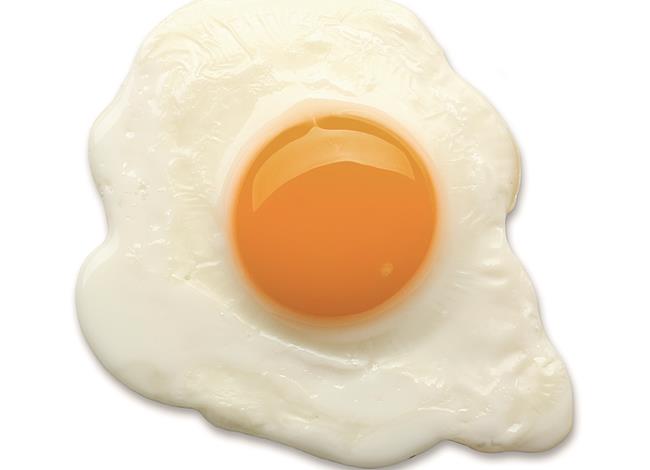
Protein in egg whites and yolks
While egg whites are mainly associated with being the protein source for eggs, both the whites and yolks have protein.
The whites provide a little over 50% of the protein in eggs. On average, egg whites provide about 4 grams while the yolks provide between 2-3 grams of protein. An egg yolk has about 99% of the fat content for an egg and provides about 55 calories, but an egg white only provides about 17 calories.
Therefore, people on a low calorie, low fat diet may prefer eating just the egg whites. However, when you eat only the egg whites, you are missing out on the nutrients found in the egg yolk.
Are egg yolks bad for you?
Besides being the main source for many vitamins and minerals, the egg yolk provides most of the fat and cholesterol. A typical large egg yolk provides about 63% DV cholesterol.
Previous health messages advised limiting daily cholesterol intake to less than 300 mg per day. However, recent research suggests the concern for dietary cholesterol may not be needed for most people.
A 2015 review (3) suggests research shows a daily intake of one egg did not show to have an adverse effect on health.
Other research suggests there was not an association between egg consumption (or dietary cholesterol) and risk for developing type 2 diabetes.
A take away message from this review suggests maybe a bigger concern for heart health is looking at overall diet and lifestyle instead of just focusing on egg consumption.
Consuming eggs can be part of a healthy diet, but researchers and health experts still suggest using caution for consuming whole eggs in moderation.
According to the Egg Nutrition Center (4), healthy adults can enjoy eating eggs without significantly impacting cardiovascular disease risk.
If you have heart disease or risk factors for heart disease, speak with your healthcare team for individualized recommendations for dietary cholesterol.
According to the American Egg Board, the US produces about 75 billion eggs per year. Even though eggs have had a bad rap for being high in cholesterol, recent research suggests eating eggs in moderation isn’t harmful for health and can provide some benefits.
Eggs provide at least 13 nutrients, a good source of protein and are virtually free in carbohydrates.
Because eggs provide so many different nutrients, they can be considered a nutrient dense food.
Eggs are dairy and like other dairy products they can be a cheap source of high quality protein. Most of the protein from eggs is found in the whites, but there is still protein in the yolk as well.
Body builders or people trying to get a high amount of lean protein in their diet without a lot of fat will consume a large amount of egg whites for protein content.
Eating just the egg whites is lower in calories and higher in protein compared to eating whole eggs, but the yolk contains many important vitamins and minerals.
Egg nutrition
An average large egg provides about 78 calories, 5 grams of fat (1.6 grams saturated fat), less than 1 gram of carbohydrates and 6 grams of protein.
It also provides about 63% DV cholesterol and varying amounts of 13 vitamins and minerals.
Most of the micronutrients from an egg are in the yolk. The yolk also provides about 250 mg of choline making it one of the best sources for this nutrient.
Choline is a vitamin like essential nutrient needed for normal cell metabolism, transporting lipids throughout the body and making neurotransmitters (1).
The Adequate Intake (AI) for choline is 425 mg a day for women and 550 mg a day for men. The need for choline can be increased during pregnancy as choline is also needed for cognitive development (2).
Can eating eggs provide benefit to weight loss?
A 2005 study (5) gave overweight or obese study participants an iso-caloric and equal weight breakfast that was either egg or bagel based.
Lunch was provided to participants 3.5 hours after breakfast. Researchers found the egg based breakfast provided higher levels of satiety and reduced food intake compared to an iso-caloric bagel based breakfast.
A 2008 study (6) also found an egg breakfast enhanced weight loss when it was part of a low calorie diet.
However, when study participants ate an egg based breakfast but not following a low calorie diet, weight loss was not significant.
This suggests just adding eggs to your diet won’t necessarily translate to weight loss.
One reason why consuming eggs may be associated with weight loss while following a lower calorie diet is because of the protein content in eggs.
Protein has a high satiety level meaning after eating protein, hunger levels stay lower longer compared to carbohydrates and fat.
Therefore, eating a breakfast, like one with eggs, may help stave off hunger levels later in the day which can be beneficial for weight loss.
Conclusion: egg yolks or whites?

Both the egg yolks and whites provide beneficial nutrients. Both the yolks and white provide protein, but the whites do provide a little more protein.
The egg whites are virtually fat free and low on calories, so the egg whites can be more popular on low fat, low calorie diets. However, the egg yolks also provide many beneficial nutrients.
Most research studies suggest healthy people eating eggs in moderation does not increase risk for cardiovascular disease.
If you have individual questions about your health and how many eggs you should be eating, speak with your healthcare team.










